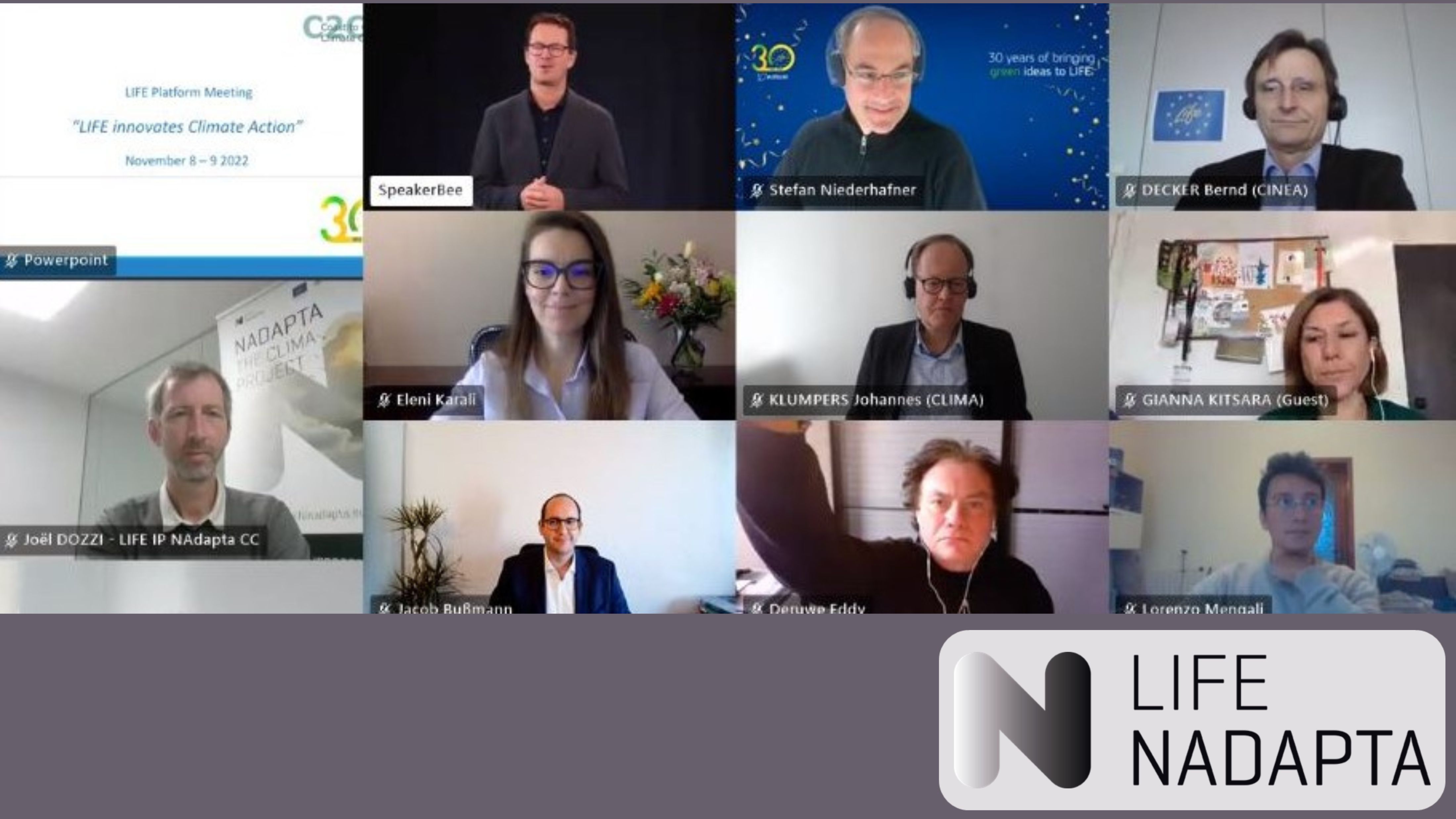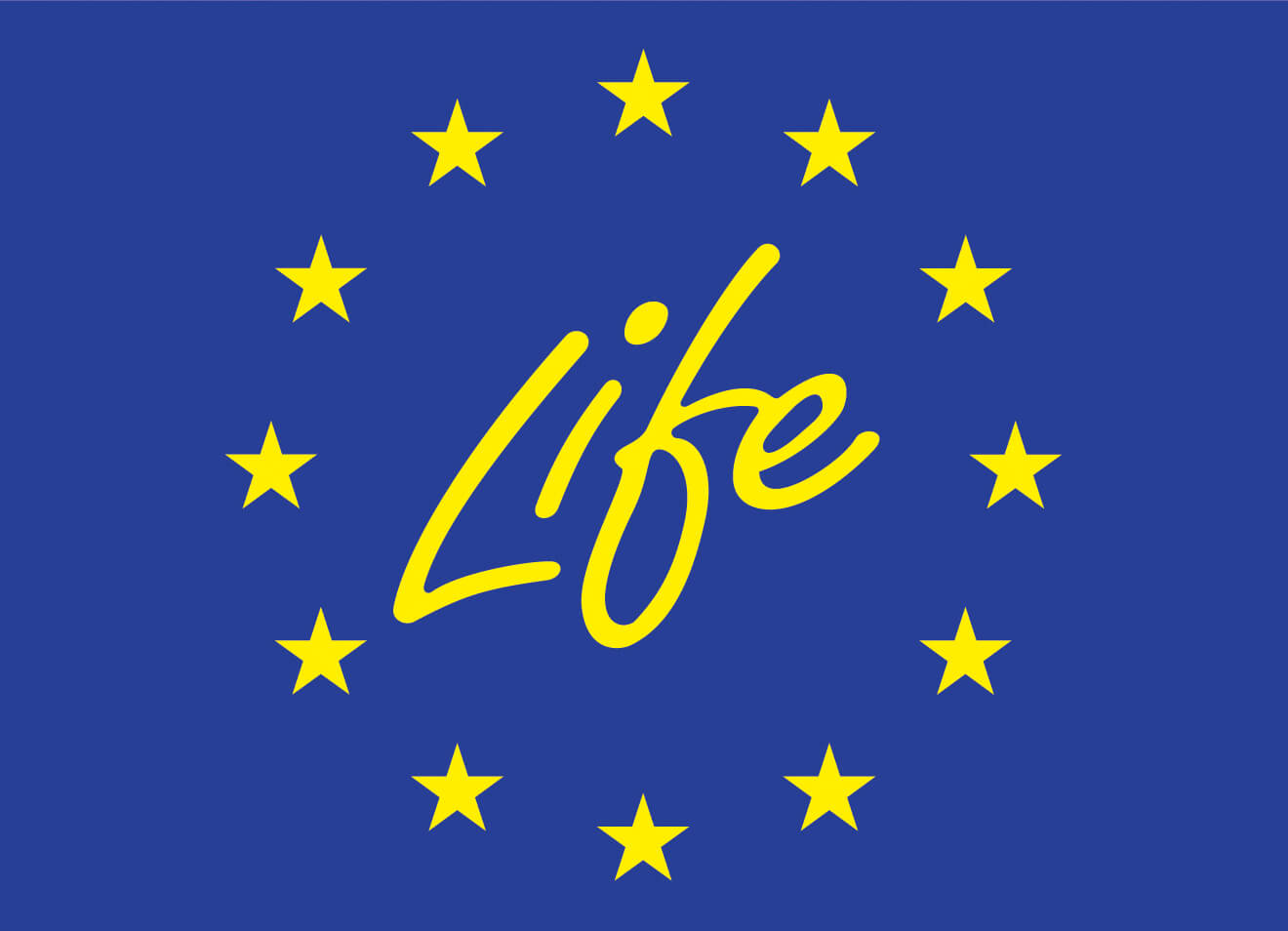
LIFE-IP NAdapta-CC stands out for its results and networking, among several European projects invited to the EU Platform Meeting on innovation in climate action
The European project presented the main results with local and regional impact, for a greater resilience of Navarra to climate change.
23-11-2022
Under the impulse of CINEA and the LIFE IP C2C Coast to Coast Climate Challenge project, the LIFE-IP NAdapta-CC project was invited to participate on 8 and 9 November in the platform meeting on climate innovation. The first day of the event was dedicated to the presentation of innovative systemic models for climate change adaptation, and the second day to the promotion of governance and participation.
The main objective was to present, analyse and share experiences on climate action from a systemic point of view, with the participation of 14 integrated LIFE projects and 1 H2020 project. Thus, different ways of working from a multilevel, cross-cutting perspective and with territorial actors were presented.
Joël Dozzi, technical coordinator of the LIFE-IP NAdapta-CC project, presented in session 1, entitled 'Regional systemic innovation for adaptation: new partnerships towards resilience', the most relevant activities and results at regional and local level carried out in the region of Navarra, highlighting the tools and viewers, as well as the governance and stakeholder participation systems between the different areas of the project.
Knowledge transfer and synergies with other projects
The event, organised by the LIFE programme, allowed to increase networking, share results, and generate synergies between projects financed by the European programme. In this way, the managing authority seeks to ensure that the learning acquired is shared, as well as that new opportunities for transfer between countries and regions emerge.
The integrated European project LIFE-IP NAdapta-CC aroused special interest due to the level of information available (monitoring, applications, viewers, public access to updated data, studies and guides, among others), the coordination and governance between the various local, regional or national agents, and the strong involvement of municipalities through the Covenant of Mayors for Climate and Sustainable Energy and the respective action plans or PACES. It should also be noted that LIFE-IP NAdapta-CC was the first integrated climate change project approved in Europe and has a multi-sectoral scope of action, developing innovative measures for adaptation to climate change in various thematic areas such as water, forests, agriculture, livestock, human health, infrastructures, territorial planning and the local environment, as well as cross-cutting and complementary actions.
The positive impact of working in a cross-cutting and collaborative manner at regional level between the main actors involved in climate change (Government of Navarra, public companies, regional networks, local action groups, local councils or local entities...) was also highlighted during the question and answer session. The level of commitment of the Foral Community with the Climate Change Roadmap of Navarra 2017-2030-2050 (HCCN-KLINa), and the Foral Law on Climate Change and Energy Transition (LFCCyTE) approved in March of this year 2022, was also highlighted.
The participation in the event and the follow-up of the other initiatives presented, has allowed to identify cases of interest for LIFE-IP NAdapta-CC. For example, the Belgian project LIFE IP BE REEL for the importance of working with a collaborative approach, or the Polish project LIFE ADAPTCITY for the need to bring together municipalities to share information and proposals. Also, a pilot case called CLIMATE ROAD has been identified, in the framework of the Danish LIFE IP C2CC project, for the adaptation of infrastructures with the development of a roadway combining geothermal energy generation for the neighborhood, and sustainable urban drainage systems (SUDS).
CINEA, organiser of the event, highlights as main conclusions the need to combine knowledge, regulation, citizen participation and financial resources. It is also crucial to be able to exchange, network and build community. It was seen, for example, that raising awareness on a multilevel basis (citizens, local authorities, public administration, businesses, etc.) is essential to promote action on climate change. The European authorities highlighted the importance of co-creation for systemic innovation, thanks to the promotion of synergies, new partnerships and networks, knowledge sharing, and the promotion of co-decision processes.


